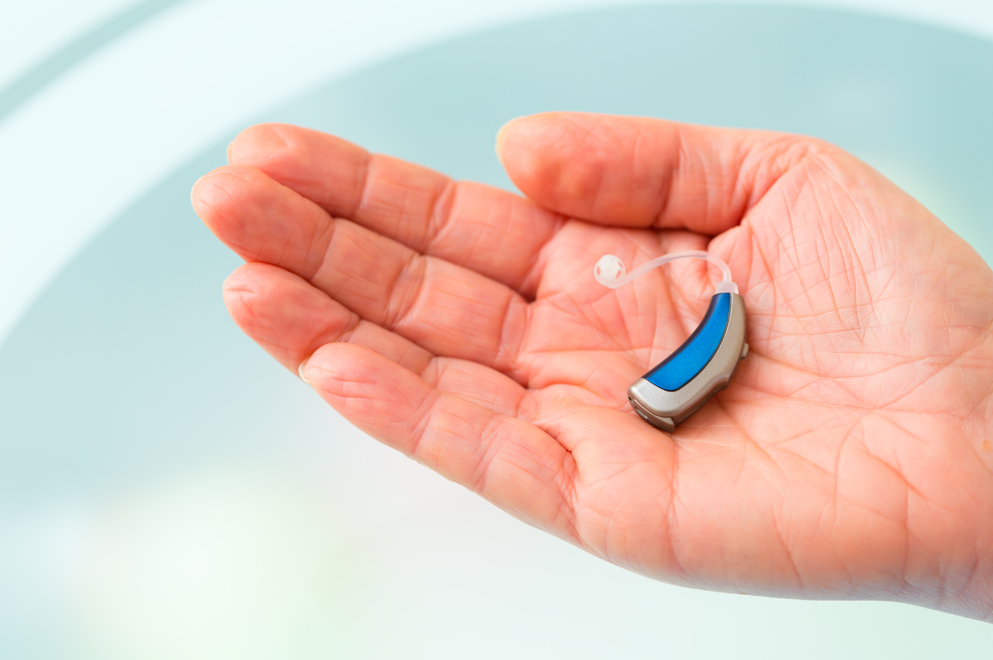
Hearing aids and earmolds are delicate pieces of equipment that need to have some attention to keep them in good working order. Before wearing hearing aids, it’s essential to make sure you perform a visual check, including a listening check to make sure they’re working correctly. As well as regular examinations with an audiologist, there is some self-maintenance that needs to be carried out on a daily and weekly basis.
When thinking about the care of hearing aids and earmolds, you first need to identify and familiarize yourself with the type. There are three primary ranges of hearing aids; in the ear, behind the ear and in the canal. They all have similar methods of care; the essentials include a visual inspection, listening check and cleaning of both the hearing aids and earmolds.
Inspecting your hearing aid
The visual inspection is something that should be carried out daily. It is best to perform checks that include looking over the earmold tubes for any holes, cracks or twists making sure the volume controls and switches are working correctly and not sticking. Also, check that the tubing fits snug and precisely onto the hearing aid and that the opening of the earmold is free of moisture and wax. You should have some necessary apparatus to help with this provided by your audiologist.
Whether you wear hearing aids yourself or care for someone who uses them, a regular listening check must be carried out ideally daily before putting them in. If you’re unable to do this, then it’s best to have regular check-ups with your audiologist, who will be able to make sure they’re performing as they should. You should be listening for any signs of static, crackling or whistling. By completing this daily, you’re able to notice straight away if they’re not working correctly and take the relevant action. If you ever see a problem, call your audiologist.
Cleaning your devices
The cleaning of your hearing aids and earmolds plays a vital role in keeping them working well and comfortable. You need to have a good routine and make sure you’re storing them in a safe and secure place when not in use.
Ideally, each day you should wipe the earmold over with a soft cloth or wipe each time you remove them; test the batteries in the hearing and change them if they’re low. Check the opening of the earmold for earwax as it can quickly build up. You need to be gentle when removing any wax from your earmolds; you will have a wax tool to help you complete this task. Make sure you never use any sharp objects to do this as it can easily damage the earmolds. To prevent dirt and moisture from building wipe the hearing aids over frequently. When not using your hearing aids make sure the battery compartment is pulled open and ensure the hearing aids are stored in a cool, dry place when not in use during the day and place them in a dehumidifier or dry-aid for overnight protection.
Developing a schedule
Some of the cleaning isn’t required as often. While some can be completed every week, whereas other tasks only need to be done as and when needed. You should look to maintain your hearing aids and earmolds by removing and replacing the tubing connecting the earmold and hearing aid. If they become loose, you might need to replace them sooner than a week. You need to carefully dry the earmolds and tubing using an air blower to remove any moisture built up through daily activities. Wash them with warm water, mild soap and wash the earmold when you need to, if you’re someone who has regular wax buildup, this might be required more often.
Proper storage
It’s essential to make sure you’re keeping your hearing aids and earmolds safe both when in use and not. Usually, you will have the use of a carry case for when out and about, a storage case for at home and a small case for travel. Other items you can expect to receive from your audiologist to help with the upkeep of your equipment will include, spare batteries, replacement tubing, wax-picker, dehumidifier, dryer case, listening equipment for the daily checks and tape which helps keep behind the ear hearing aids in place. You may require other pieces of equipment, depending on your needs. If you think you might be missing any of the tools, you need to look after your hearing aids and earmolds correctly you should speak to your audiologist.
To learn more about Evolution Hearing, call us at:
- Charlottesville, VA: (434) 216-3599
